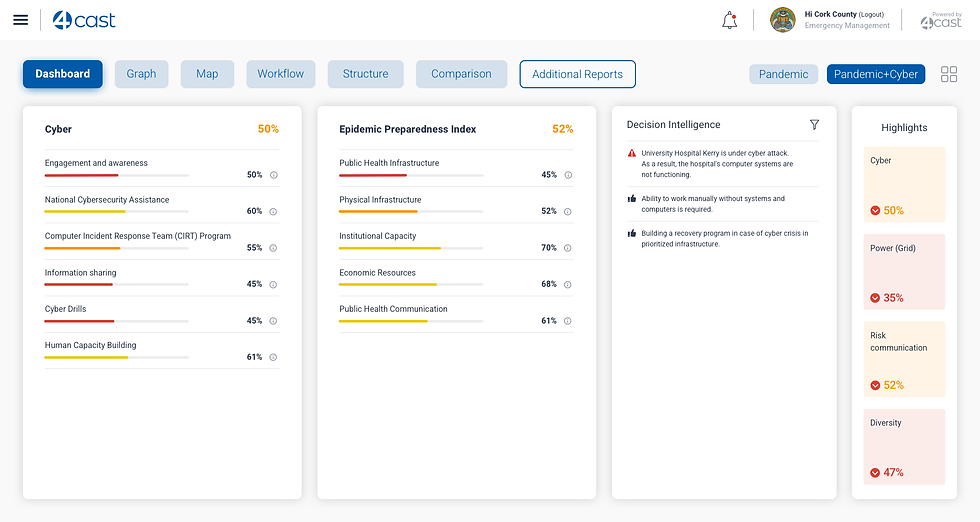
CHALLENGE
When a disaster occurs in Ireland, decision makers need a defensible methodology to identify needs and prioritize action for the most vulnerable populations, with little data and limited resources.
THE SOLUTION
Decision support powered by artificial intelligence (AI) provides insights to proactively plan and prepare, anticipate needs, and use data to inform pre-disaster coordination - ensuring that the needs of the most vulnerable are met. These methods can be adapted during times of disaster to inform crisis action planning efforts in order to reduce uncertainty, while supporting the community’s short, intermediate, and long-term resilience and equity goals.

THE PROCESS
Ireland’s emergency managers, together with 4Cast’s AI team formulated the key question in order to understand the problem they needed to solve. This is a critical component of implementing AI into any organization. The Ireland model was built from three core layers:
-
Information: Attributes, metrics and key performance indicators were organized into a tree model, utilizing a team of operational planners, analytic translators, and data scientists.
-
Analysis: We then analyzed the available data, including the incident event scenarios, forecasts, and simulations to predict the probability of different outcomes.
Recommendations: We developed a list of alternative courses of action for decision makers based on their responsibilities and the modeling from the information-gathering phase.
THE RESULTS
4Cast mapped the needs and gaps of the Ireland Health Executive region and developed a comprehensive approach in order to provide decision intelligence insights that would enable targeted service delivery during times of extended disruption. These insights help Ireland’s emergency managers prioritize medical care and transportation support for vulnerable populations when they need it most.